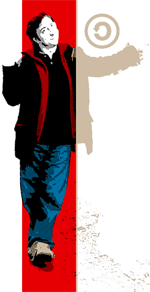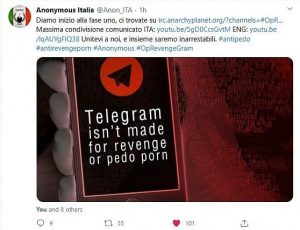
Let’s talk of copyright and about Bruce Perens. Ok?
Yes. I have been on both sides of the copyright issue. I worked at Pixar for 12 years and have had 19 years of full-time employment in the film industry. I am credited on Toy Story II and A Bug’s Life. I later became one of the founders of the Open Source movement in software, and left Pixar to pursue that. Today I help governments, companies, and lawyers understand Open Source. I’m also an Open Source software author, and am about to release a new content-management system for the Ruby on Rails rapid application development platform. I live in Berkeley, California, with my wife and 12-year-old son.
So, you can see that I’ve been on both sides of the copyright issue: I’ve made technology for feature films and have worked on the films themselves, and bought a home with my income from Pixar’s IPO. Then in my second career I made Open Source software and helped people worldwide to share the things they make, and companies and governments to understand this.
1) The juncture of conflicting interests frequently leads to a clash between copyright and other basic institutions (fundamental user rights) in our society, particularly the freedom of speech, privacy and Internet access. Is copyright, as we have known it for three centuries, an appropriate tool for the needs of creators and society in a digital environment as SOPA, Pipa and Scotus suppose?
The problem isn’t really whether copyright is appropriate, it is that there is presently no balance of the rights of the copyright holder versus the good of society. This came about because only the very large copyright holders have been represented in the drafting of copyright law, for at least a century. It is as if there had been elections in which only one party was allowed to vote. Of course the laws become progressively more extreme in such a situation. Continua a leggere ACTA and Copyright 2.0: Di Corinto interviews Bruce Perens


 Anonymous mocks networked recruiters Islamic Jihad ISIS
Anonymous mocks networked recruiters Islamic Jihad ISIS

 Il primo aprile si è aperto a a Matera l’incontro sulla libertà di stampa del
Il primo aprile si è aperto a a Matera l’incontro sulla libertà di stampa del 


